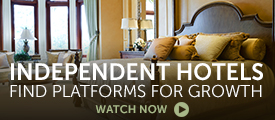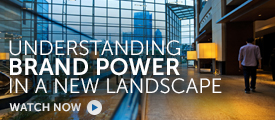Independent hotels have more access to technology and distribution channels than ever before. Could this help them compete with the groups?
According to a report from PWC; ‘about 40-60% of Europe’s hotels are currently estimated branded’. There are more unbranded hotels in rural areas than in cities and airports. The report also states that branded hotels across Europe are set to increase.
So how can independent hotels keep growing? Our experts discuss:
There is a mix of, technology companies, OTAs, and hospitality companies offering services for independents. These include: TripAdvisor, WorldHotels, and ChoiceHotels as above. Plus Umi Digital, AccorHotels, Sabre, TravelClick, and more.
This is a big market to tap. Almost 40% of the UK hotel market is independent hotels, according to a report from STR global. In August last year independent hotels in the UK had a better ADR than branded hotels, at £119 compared to £79. STR’s report indicates that this is largely due to the tendency for independent hotels to be a classed as upscale or luxury, whilst there is a strong economy hotel segment of branded hotels. The report also found that occupancy in branded hotels last year was 4% better than independents (73% vs 77%).
Upscale boutiques are in demand in America. According to a report from The Highland Group, the boutique hotel industry in the US is growing at a 3.1% annual pace and demand is growing at 6.7%. The report classes boutique hotels as ‘independent or part of small brands’ with ‘40 to 300 guest rooms’ and ‘generally upscale to luxury’.
If you’ve been sent to this page and you’re not yet on the circulation list to receive these regular briefings and you would like to sign up, you can do so here. It’s free.
Video clips produced by yBC for the Hospitality Channel, including interview from industry conferences such as the IHIF conference as well as specific Hospitality Channel shoots.



